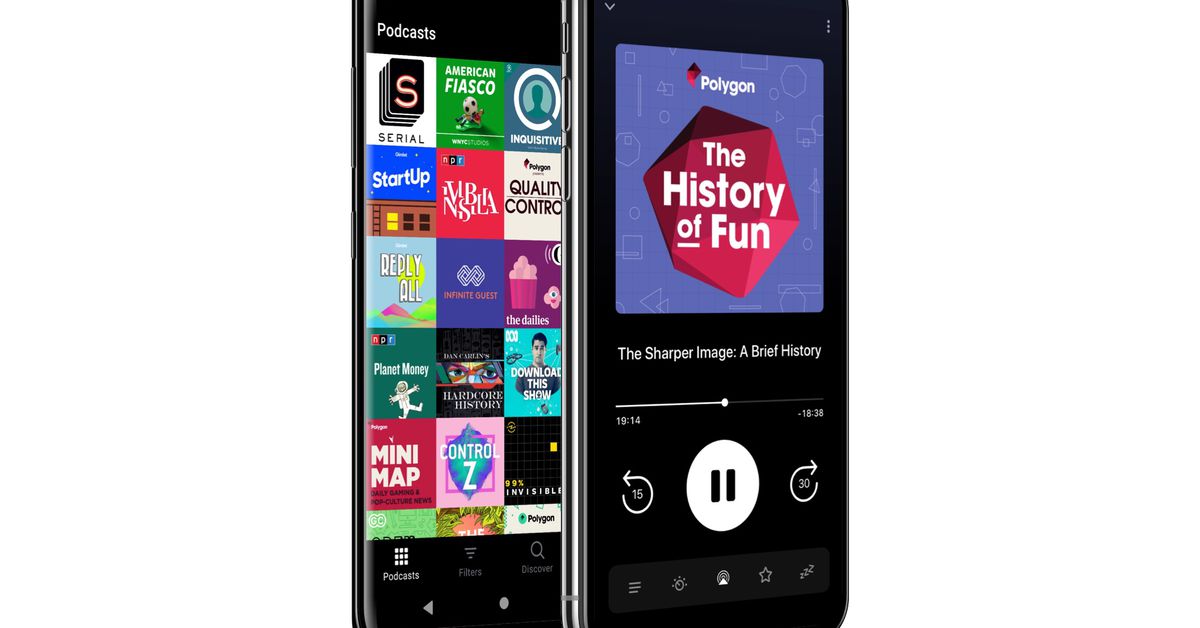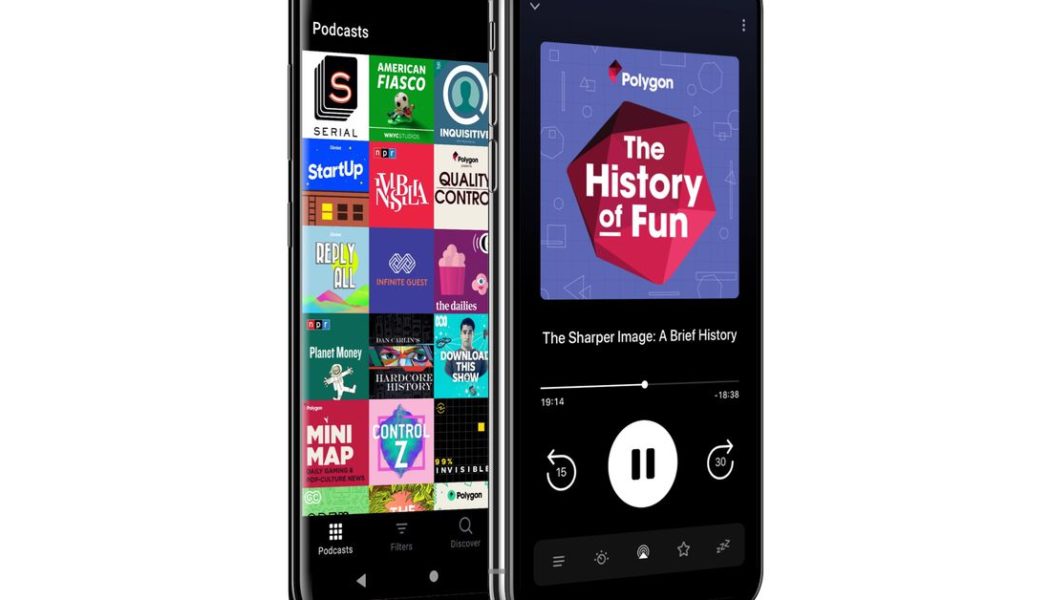
Pocket Casts has a new owner. Automattic, which runs WordPress.com and recently purchased Tumblr, announced today that it’s acquired Pocket Casts, the well-regarded podcast app. The blog post announcing the purchase didn’t offer much in the way of a preview, but it did tease potential future integrations.
“As part of Automattic, Pocket Casts will continue to provide you with the features needed to enjoy your favorite podcasts (or find something new),” the post states. “We will explore building deep integrations with WordPress.com and Pocket Casts, making it easier to distribute and listen to podcasts.”
Pocket Casts launched in 2010 and sold to NPR and a group of other public media groups eight years later. It’s been well-received, particularly from sites like The Verge, because it’s available across platforms. It started monetizing through a program called Pocket Casts Plus, which charges users a monthly subscription fee for features like desktop app access and a standalone Apple Watch app, in 2019.
Pocket Casts initially went up for sale in January after its board of public media members voted to do so. The app, which is free to download, was losing money, and NPR reportedly lost $800,000 on it last year. We’ve reached out to Automattic for comment on how it plans to monetize the app, as well as to learn more about whether it’s keeping all of the Pocket Cast employees on full-time. We’ll update if we hear back.
Interestingly, the Spotify-owned app Anchor announced a partnership with WordPress.com in February this year, which allows people to turn blog posts into audio content with a few clicks. Although the feature relies on text-to-speech technology, which isn’t as personal and human-sounding as, well, a real human, the broad idea clearly speaks to WordPress’ interest in helping bloggers communicate through podcasts.
Presumably, it’ll keep building on that vision with its Pocket Casts acquisition. Although Pocket Casts is a listening app, it’s also well-known for its discovery features and curation. It’s possible Automattic could push people toward content from its WordPress users.










